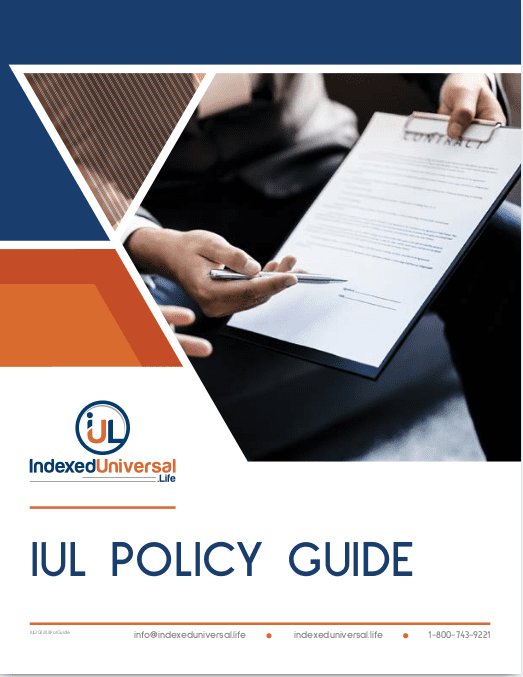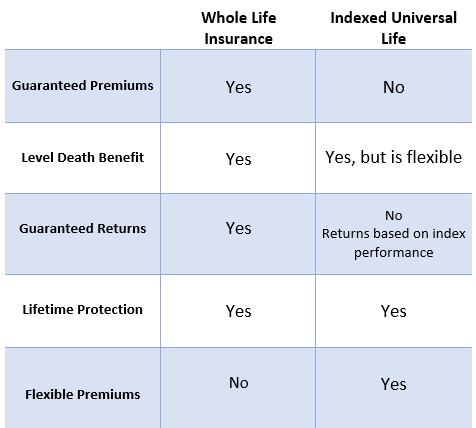All Categories
Featured
Table of Contents
Do they contrast the IUL to something like the Lead Total Supply Market Fund Admiral Shares with no load, a cost proportion (ER) of 5 basis factors, a turn over ratio of 4.3%, and an outstanding tax-efficient record of circulations? No, they compare it to some horrible actively handled fund with an 8% lots, a 2% ER, an 80% turn over ratio, and a terrible record of short-term funding gain distributions.
Mutual funds often make yearly taxed circulations to fund owners, also when the value of their fund has actually dropped in value. Mutual funds not just call for income coverage (and the resulting yearly taxes) when the mutual fund is going up in value, however can additionally enforce revenue taxes in a year when the fund has actually gone down in worth.
You can tax-manage the fund, harvesting losses and gains in order to reduce taxable distributions to the financiers, yet that isn't somehow going to change the reported return of the fund. The ownership of mutual funds may call for the shared fund proprietor to pay projected taxes (nationwide single premium ul).

IULs are easy to place so that, at the owner's fatality, the beneficiary is exempt to either income or estate tax obligations. The same tax reduction strategies do not work almost too with shared funds. There are various, usually pricey, tax traps connected with the moment purchasing and selling of mutual fund shares, catches that do not apply to indexed life Insurance.
Opportunities aren't really high that you're mosting likely to go through the AMT because of your common fund circulations if you aren't without them. The rest of this one is half-truths at best. For example, while it is real that there is no income tax because of your successors when they acquire the profits of your IUL policy, it is additionally real that there is no income tax obligation because of your successors when they inherit a common fund in a taxable account from you.
Maximum Funded Life Insurance
The government estate tax exemption limitation is over $10 Million for a couple, and expanding each year with inflation. It's a non-issue for the substantial majority of medical professionals, a lot less the rest of America. There are far better methods to avoid estate tax obligation problems than purchasing investments with reduced returns. Shared funds may trigger revenue tax of Social Safety and security benefits.

The development within the IUL is tax-deferred and may be taken as tax complimentary income using financings. The plan owner (vs. the mutual fund supervisor) is in control of his/her reportable income, thus enabling them to lower or even get rid of the tax of their Social Protection benefits. This set is fantastic.
Here's another very little issue. It holds true if you get a shared fund for say $10 per share right before the distribution date, and it disperses a $0.50 circulation, you are after that going to owe taxes (probably 7-10 cents per share) although that you haven't yet had any kind of gains.
In the end, it's really concerning the after-tax return, not just how much you pay in tax obligations. You're also possibly going to have more money after paying those taxes. The record-keeping needs for owning mutual funds are substantially a lot more complicated.
With an IUL, one's documents are maintained by the insurance provider, copies of annual declarations are sent by mail to the proprietor, and circulations (if any kind of) are totaled and reported at year end. This set is likewise sort of silly. Obviously you should maintain your tax obligation documents in situation of an audit.
Ideal Universal Life
Rarely a reason to purchase life insurance. Mutual funds are frequently component of a decedent's probated estate.
Additionally, they undergo the delays and costs of probate. The proceeds of the IUL plan, on the other hand, is always a non-probate distribution that passes outside of probate straight to one's called beneficiaries, and is for that reason not subject to one's posthumous creditors, undesirable public disclosure, or comparable hold-ups and expenses.
Medicaid disqualification and lifetime earnings. An IUL can supply their proprietors with a stream of income for their whole life time, regardless of just how long they live.

This is helpful when organizing one's affairs, and converting possessions to earnings prior to a retirement home confinement. Shared funds can not be transformed in a similar fashion, and are often thought about countable Medicaid assets. This is an additional dumb one promoting that inadequate individuals (you know, the ones that require Medicaid, a federal government program for the poor, to spend for their nursing home) need to make use of IUL as opposed to mutual funds.
Iul Insurance Meaning
And life insurance policy looks horrible when contrasted relatively against a pension. Second, people who have cash to purchase IUL over and past their pension are going to have to be terrible at taking care of money in order to ever before receive Medicaid to spend for their assisted living facility expenses.
Chronic and terminal disease biker. All policies will certainly allow an owner's easy accessibility to money from their plan, usually forgoing any type of surrender charges when such people suffer a major health problem, need at-home treatment, or come to be confined to a retirement home. Common funds do not provide a similar waiver when contingent deferred sales fees still relate to a shared fund account whose proprietor needs to market some shares to money the prices of such a keep.
Pacific Life Indexed Universal Life Insurance
Yet you get to pay more for that benefit (motorcyclist) with an insurance plan. What a good deal! Indexed global life insurance policy gives survivor benefit to the beneficiaries of the IUL owners, and neither the owner neither the beneficiary can ever before lose cash because of a down market. Mutual funds supply no such guarantees or death advantages of any kind.
Now, ask yourself, do you actually need or desire a survivor benefit? I absolutely do not need one after I get to financial independence. Do I want one? I intend if it were economical sufficient. Obviously, it isn't economical. Usually, a buyer of life insurance spends for truth price of the life insurance benefit, plus the prices of the policy, plus the profits of the insurer.
S&p 500 Insurance Companies
I'm not entirely sure why Mr. Morais included the entire "you can not lose money" again right here as it was covered quite well in # 1. He simply intended to duplicate the best selling factor for these things I mean. Once more, you do not shed small dollars, however you can shed actual bucks, along with face major opportunity expense due to reduced returns.

An indexed universal life insurance policy plan proprietor may trade their policy for a completely various plan without activating income tax obligations. A common fund owner can stagnate funds from one common fund firm to an additional without marketing his shares at the former (thus activating a taxed event), and redeeming new shares at the last, commonly subject to sales costs at both.
While it holds true that you can exchange one insurance plan for an additional, the factor that people do this is that the very first one is such an awful policy that also after acquiring a brand-new one and going via the very early, unfavorable return years, you'll still come out in advance. If they were sold the right plan the very first time, they should not have any type of desire to ever exchange it and undergo the early, negative return years once more.
Table of Contents
Latest Posts
Ffiul Insurance
Best Iul Provider
Index Life Insurance Companies
More
Latest Posts
Ffiul Insurance
Best Iul Provider
Index Life Insurance Companies